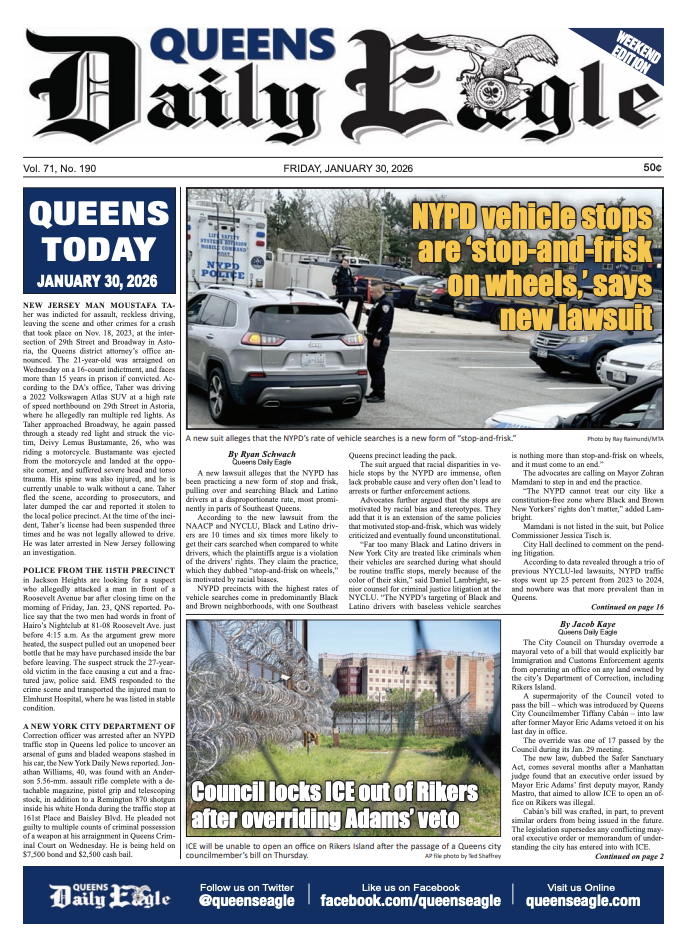Queens Volunteer Lawyers Project continues serving low-income litigants through pandemic
/The Queens Volunteer Lawyers Project has continued to serve the borough, even as court proceedings were limited, said Executive Director Mark Weliky. Photo courtesy of Mark Weliky
By Rachel Vick
For three decades, the Queens Volunteers Lawyers Project has been providing pro-bono services to residents of the borough facing civil court matters.
That hasn’t changed during the pandemic, but COVID-19 did force the organization to make major changes, including a shift to remote legal help, said QVLP Executive Director Mark Weliky.
“People are still getting sued and debt collections are being filed but cases are not in court yet,” Weliky said. “We’re helping as many people as possible to fill their court documents for cases but of course it’s much more difficult without face-to-face consultations.”
The COVID-19 economic crisis has also affected the organization’s funding. QVLP has so far been unable to hire for positions that opened up when two of seven staff members took jobs elsewhere, he added.
Weliky said court closures and the statewide eviction moratorium slowed many of their clients’ cases, but staff lawyers and a smaller-than-usual team of volunteers have continued to help working class residents complete wills, designate health care proxies or handle emergency housing cases.
The organization’s consumer debt clinic has also helped about 50 people in 2021 so far, but that’s about 250 people less than they served in the same time period last year, Weliky said.
Weliky said his team is now preparing for a surge in evictions, foreclosures and housing court cases when the current eviction freeze ends.
“We certainly are interested in the upcoming budget negotiations in Albany so that there’s funding allocated for helping low-income people with foreclosures; that will help us with having staff to meet the high demand we expect to occur when courts reopen,” Weliky said.
The pandemic compelled QVLP to adapt how it provides its vital services. The organization ran an in-person consumer debt clinic every Friday since January 2008, but has had to shift to virtual and phone support.
But the reliance on technology has complicated legal matters for QVLP clients — the very people most impacted by the pandemic, Weliky said.
“Low-income and communities of color have been hit much harder than other sectors by COVID, and it’s going to cause more problems for those communities … and adversely impact them even more in the coming months and years,” he added.




